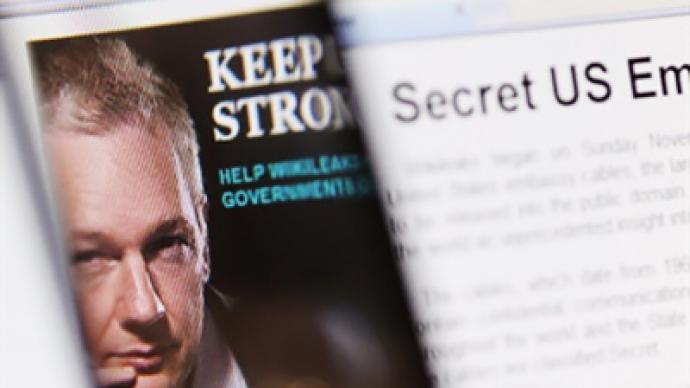US cracks down, extends Patriot Act, targets WikiLeaks

The US Senate approved a bill to extend three main provisions of the Patriot Act set to expire in two weeks. Meanwhile anti-WikiLeaks legislation aimed at helping the government prosecute leakers was introduced in the US House.
The Senate bill extends aspects of the Patriot Act, and holds on others to address civil liberties concerns held by some in the legislature and allows for additional time to find a compromise with the House. The Patriot Act was put into place quickly after the September 11, 2001 attacks on the United States.The proposed bill extends the primary provisions that allow the US government to track suspected terrorists. These provisions include roving wiretaps, tracking foreigners alleged to have ties to militant groups, the accessing of business records and investigating of individuals who may seek to engage in terror as individuals.Critics claim the act as a whole, including these provisions is a violation of civil liberties and international laws. Those who favor the Patriot Act provisions allege the use of the powers have allowed the government to prevent a number of attacks which threatened American lives. In a further crackdown on civil liberties, a bill has been introduced by Republican Congressman Peter King from New York aimed at helping the US prosecute WikiLeaks and other sources of leaked information. The anti-WikiLeaks legislation has been dubbed the SHIELD Act and would amend the US Espionage Act to include the act of publishing classified information that bears the identity of a classified source or informant an act of espionage.“Julian Assange and his associates who have operated and supported WikiLeaks not only damaged US national security with their releases of classified documents, but also placed at risk countless lives, including those of our Nation’s intelligence sources around the world," said King, who happens to chair the House Committee on Homeland Security. ”Julian Assange and his compatriots are enemies of the US and should be prosecuted under the Espionage Act. This legislation provides the Attorney General with additional authority to do just that.”King and the bill’s supporters argue WikiLeaks, its followers and similar start-ups like OpenLeaks and LocalLeaks are threats to national security.In November 2010 King began his crusade against WikiLeaks by calling on Secretary of State Hillary Clinton and US Attorney General Eric Holder to officially declare WikiLeaks a foreign terrorist organization. Opponents contended altering the Espionage Act to target third-party publishers of leaked information violates both a free press and a right to freedom of expression. Amending the Espionage Act in this fashion would make the law unconstitutional. Many say it has become increasingly clear the US government is keen to support freedoms that benefit them, but oppose any which may not. The House bill follows similar legislation introduced previously in the Senate by Republicans Senators John Ensign and Scott Brown, and independent Senator Joe Lieberman.












